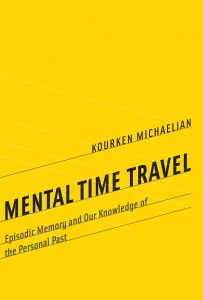If memory is a form of imagination, how can it give us knowledge of the past? Does it give us knowledge of the past at all? The simulation theory of memory discussed in my previous post threatens to push us towards a form of scepticism about memory knowledge.
 The form of scepticism at issue here is not Russell-style, a priori scepticism, motivated by the thought that, for all we can tell, the world might have come into existence five minutes ago, complete with our apparent memories of the past. It is, rather, an empirically-grounded form of scepticism. What we need to do in order to respond to this form of scepticism is not to show that memory is reliable (which arguably can’t be done without relying on memory itself). What we need to do, instead, is to show how memory can be reliable despite its constructive, generative character.
The form of scepticism at issue here is not Russell-style, a priori scepticism, motivated by the thought that, for all we can tell, the world might have come into existence five minutes ago, complete with our apparent memories of the past. It is, rather, an empirically-grounded form of scepticism. What we need to do in order to respond to this form of scepticism is not to show that memory is reliable (which arguably can’t be done without relying on memory itself). What we need to do, instead, is to show how memory can be reliable despite its constructive, generative character.
Intuitively, imagining the future is an error-prone process. If remembering the past is, like imagining the future, a form of mental time travel — if to remember just is to imagine the past — it would seem to be equally error-prone. In Mental Time Travel: Episodic Memory and Our Knowledge of the Personal Past, I develop a two-part response to this worry. First, I argue that the constructive processes involved in remembering are designed to produce representations of the past which are accurate despite departing from experience. Work on the misinformation effect, for example, demonstrates that our memories can be reshaped by testimony received from others. But if the testimony that we receive is mostly accurate, this need not decrease the accuracy of memory and may even increase it. Rather than thinking of the effect of testimony on memory in terms of a misinformation effect, it may be more appropriate to think of it in terms of an information effect.
Second, I argue that metacognitive monitoring plays a key role in ensuring the reliability of remembering. While the incorporation of non-experiential information into memory is in principle compatible with the reliability of memory, the incorporation of such information would in practice decrease the reliability of memory were the subject to be entirely insensitive to the origins of remembered information. But there is good reason to think that subjects do in fact have the appropriate sort of sensitivity to the origins of remembered information. Research on source monitoring, in particular, suggests that remembering involves metacognitive monitoring processes that rely on content-based criteria (such as level of detail) to determine whether remembered information originates in reliable or unreliable sources.
Given the simulation theory of remembering, however, source monitoring cannot provide a full explanation of the reliability of memory. Episodic memory is one form of past-oriented mental time travel. Episodic counterfactual thought is another. And there are corresponding forms of future-oriented mental time travel. The various forms of mental time travel share important similarities at the phenomenological, cognitive, and neural levels, raising the question of how subjects manage to distinguish among them: if subjects are to be able to employ source monitoring to determine the source of remembered information, they must first employ a form of process monitoring to determine whether they are remembering at all. The book develops an account of process monitoring, arguing that, while content-based criteria of the sort that figure in source monitoring may play a role in process monitoring as well, process monitoring also relies on a variety of formal criteria (such as intention) and phenomenological criteria (such as feelings of pastness and futurity).
If the two-stage explanation is right, remembering can be reliable despite its simulational character. Though remembering regularly draws on nonexperiential information, this need not decrease its reliability if the nonexperiential information in question tends to be accurate. Source monitoring tends to filter out inaccurate nonexperiential information. And process monitoring reduces the risk of confusing remembering with other kinds of mental time travel.
The feelings of pastness and futurity that serve as phenomenological process monitoring criteria align with what psychologists refer to as autonoetic consciousness, or consciousness of the self in subjective time. Autonoesis appears to be uniquely human, which suggests that there is a difference in kind between human episodic memory and animal “episodic-like” memory. Is this really the case? If so, what accounts for the evolutionary emergence of a uniquely human form of mental time travel? I’ll take up these questions in my next post.

